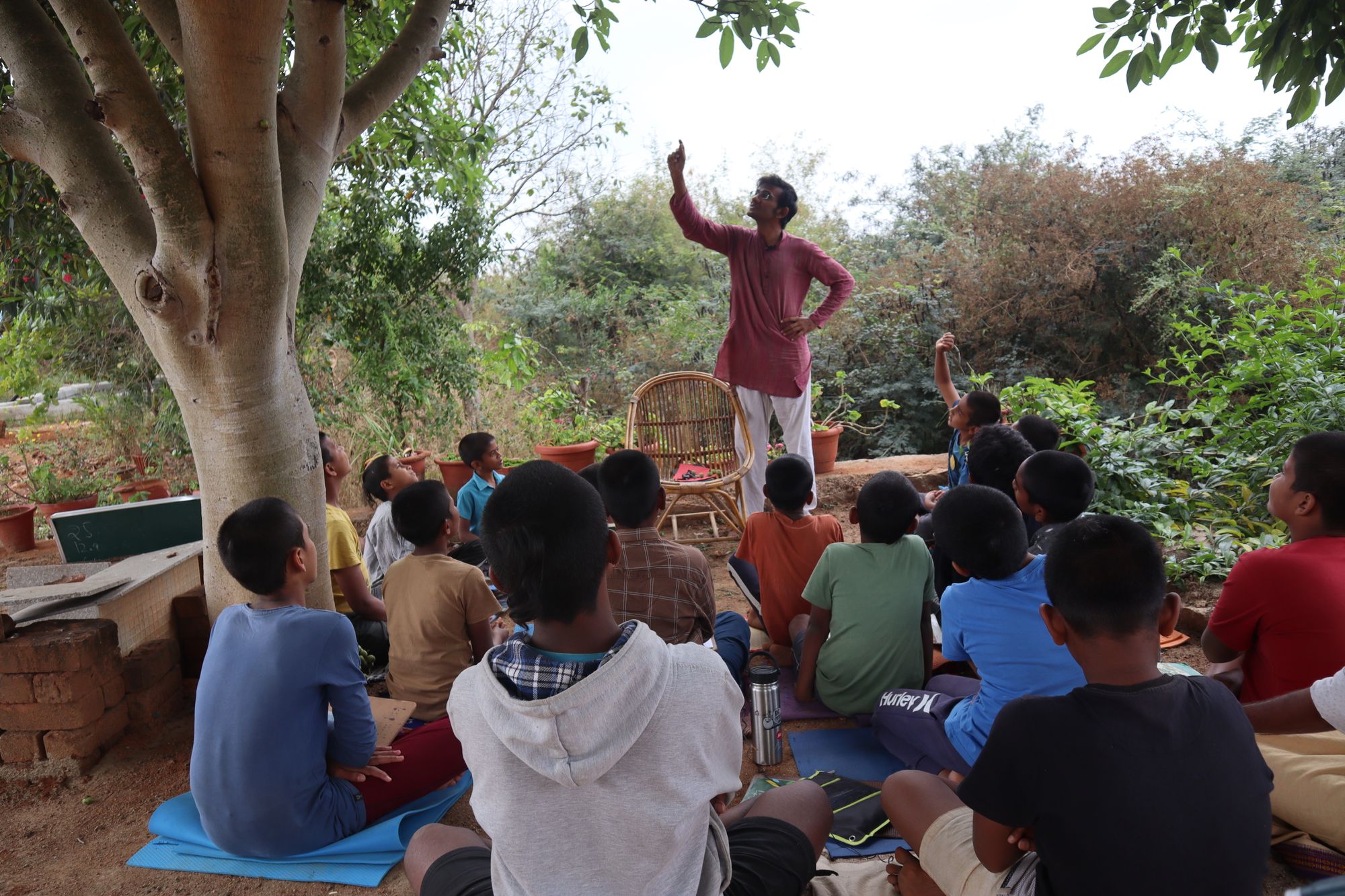What is Gurukul Education?

What is Gurukul Education?
Gurukul education is a traditional system of education that originated in ancient India. The word "gurukul" is a combination of two words, "guru" meaning teacher and "kul" meaning family. Under this system, students lived with their teachers and received education in a residential setting.
The gurukul system of education was based on the principles of guru-shishya parampara, where the teacher was not just a source of knowledge, but also a mentor and guide. The students were considered as the family of the guru and were treated with love and respect.
In the gurukul system, education was not just limited to academic subjects, but also included physical training, character building, and spiritual development. Students were taught subjects such as Vedas, Upanishads, yoga, archery, and martial arts. They were also taught how to lead a simple and disciplined life, and were trained to be good citizens and leaders.
The gurukul system of education was prevalent in ancient India for many centuries and produced some of the greatest scholars, saints, and leaders in Indian history. However, with the arrival of the British and the introduction of modern education, the gurukul system gradually declined.
In recent years, there has been a renewed interest in the gurukul system of education and many gurukul-style schools have been established in India and abroad. These schools follow the traditional methods of teaching and also incorporate modern subjects and technology.
Overall, the gurukul system of education is known for its emphasis on holistic development, strong teacher-student bond, and its ability to produce well-rounded individuals with strong character and values.
How Gurukul is different from Regular School?
The main difference between gurukul education and regular school education is the method of teaching and the overall learning environment.
- Living with the teacher: In gurukul education, students live with their teachers and receive education in a residential setting. This allows for a more personal and intimate relationship between teacher and student, with the teacher not only imparting knowledge but also serving as a mentor and guide.
- Holistic Development: Gurukul education is focused on holistic development, which includes not just academic subjects but also physical training, character building, and spiritual development.
- Emphasis on Traditional Education: In gurukul education, traditional subjects such as Vedas, Upanishads, yoga, archery, and martial arts are given equal importance as modern subjects.
- Discipline and Values: Gurukul education places a strong emphasis on discipline and values, with students being taught to lead a simple and disciplined life, and trained to be good citizens and leaders.
- Regular schools, on the other hand, tend to focus primarily on academic subjects and preparing students for higher education and career opportunities. They may not have the same level of emphasis on physical training, character building, and spiritual development, and students do not live with their teachers. Regular schools are also usually not based on traditional education.
what is Gurukul Pedagogy?
Gurukul pedagogy refers to the method of teaching and learning used in the traditional gurukul system of education. This pedagogy is based on the guru-shishya parampara, which emphasizes the guru (teacher) as a guide and mentor who imparts knowledge and wisdom to the shishya (student).
Some key elements of gurukul pedagogy include:
- Oral tradition: In gurukul education, the emphasis is on oral tradition and learning through listening, rather than reading from books. The teacher imparts knowledge through storytelling, recitation, and other forms of oral instruction.
- Personalized instruction: The gurukul system is based on personalized instruction, where the teacher is able to tailor the learning experience to the individual needs and abilities of each student.
- Emphasis on experience: Gurukul pedagogy places a strong emphasis on experience-based learning, where students are encouraged to learn through hands-on activities and practical applications.
- Multi-disciplinary approach: Gurukul education is multi-disciplinary in nature, with subjects such as Vedas, Upanishads, yoga, archery, and martial arts being given equal importance as modern subjects.
- Character building: Gurukul pedagogy places a strong emphasis on character building and inculcating values such as discipline, humility, and respect.
- In summary, Gurukul pedagogy is based on the guru-shishya parampara, where the teacher is not just a source of knowledge but also a mentor and guide. The students are taught with a multi-disciplinary approach and emphasis on experience-based learning, character building, and spiritual development.

